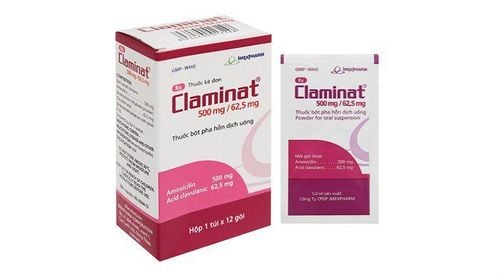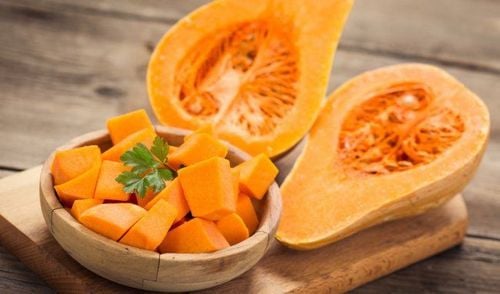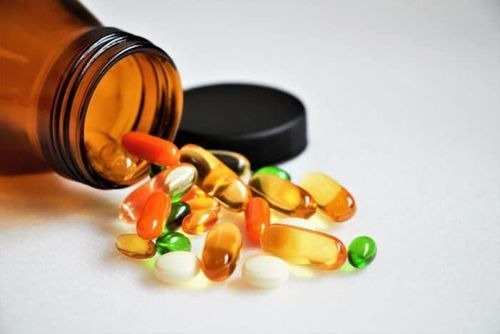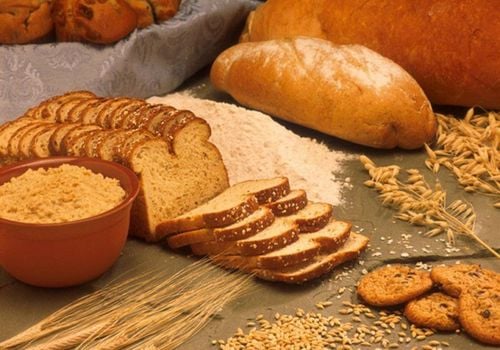This is an automatically translated article.
Pumpkin, also known as pumpkin, is quite rich in nutrients. Pumpkin is low in calories but rich in vitamins and minerals. All the nutrients of pumpkin are found in its seeds, leaves and juice. So, is it good for children to eat a lot of pumpkin?
1. The benefits of pumpkin
In pumpkin (pumpkin) contains Beta carotene, a strong antioxidant. When the body consumes foods high in Beta carotene can have the following benefits:
Reduces the risk of developing certain types of cancer Protects against asthma and heart disease Reduces the risk of age-related macular degeneration cause. Many studies have suggested that eating more plant foods, such as pumpkin, reduces the risk of obesity and overall mortality. It may also help a person avoid diabetes and heart disease, promote healthy skin and hair, increase energy and a healthy body mass index (BMI).
Research has proven the health benefits of pumpkin, including:
1.1 Regulate blood pressure Eating pumpkin is good for the heart. The fiber, potassium, and vitamin C content in pumpkin all play a role in supporting heart health.
1.2 Reduces Cancer Risk Several studies have investigated the positive relationship between a diet rich in Beta carotene and tumor suppression in prostate cancer showing that beta carotene slows down the growth of the cancer. colon cancer in the Japanese.
1.3 Prevention and control of diabetes Using pumpkin in the diet can help people control their diabetes and blood sugar levels.
A study on the prevention and control of diabetes in rats showed that a combination of two plant extracts, including the Polysaccharides found in pumpkin, reduced blood sugar in rats . This study, although not in humans, does show some potential of these plant compounds to limit type 2 diabetes.
1.4 Protects against age-related eye problems Pumpkin is high in antioxidants, vitamin C, vitamin E and Beta carotene that support eye health and prevent degenerative damage in older adults.
The National Eye Institute conducted a clinical trial and the results showed that high doses of vitamin C, vitamin E and beta carotene were associated with a significant reduction in the risk of age-related macular degeneration.

Trẻ ăn nhiều bí đỏ có tốt không là thắc mắc của nhiều bậc cha mẹ
2. Nutritional composition of pumpkin
According to the United States Department of Agriculture database, 1 cup or 245 grams of cooked, boiled or drained pumpkin, without salt, contains:
1.76 g protein 2.7 g fiber 49 calories (kcal ) 0.17 g fat 0 g cholesterol 12 g carbohydrates. Pumpkin also provides a host of essential vitamins and minerals, including: Vitamin A, vitamin C, vitamin E, riboflavin, potassium, copper, manganese, thiamin
vitamin B6, folate, pantothenic acid, niacin, iron, magnesium , phosphorus.
Pumpkin is also an excellent source of fiber. The recommended amount of fiber is between 25g and 38g per day for adults.
Fiber slows down the rate at which sugar is absorbed into the bloodstream, promotes regular bowel movements and helps digestion go smoothly.
3. Is it good for children to eat a lot of pumpkin?
Many mothers wonder “Is it good for children to eat a lot of pumpkin? ". In fact, pumpkin is very good for the development of children, especially children in the weaning period. Because pumpkin is delicious, contains a lot of nutrients that can be processed into many attractive dishes for babies. However, not every nutritious food can be eaten a lot, eating pumpkin must also be the right way.
Eating a lot of pumpkin is not good for everyone including children. When children eat too much pumpkin will absorb more carotene than needed.
A lot of carotene will accumulate on the epidermis layer of the skin, such as places on the face such as the nose, forehead or palms, feet, around the eyes, the skin will turn yellow. Therefore, children who eat a lot of pumpkin will have yellow skin; Therefore, parents need to be careful in the process of preparing pumpkin with children's dishes.
In addition, when preparing dishes with pumpkin, do not stew pumpkin for too long, because it will reduce the amount of vitamins and minerals in pumpkin. In case it is not possible, it is advisable to store squash in the refrigerator and use squash that has been processed within the day to retain nutrients as well as ensure food safety and hygiene.
Please dial HOTLINE for more information or register for an appointment HERE. Download MyVinmec app to make appointments faster and to manage your bookings easily.













